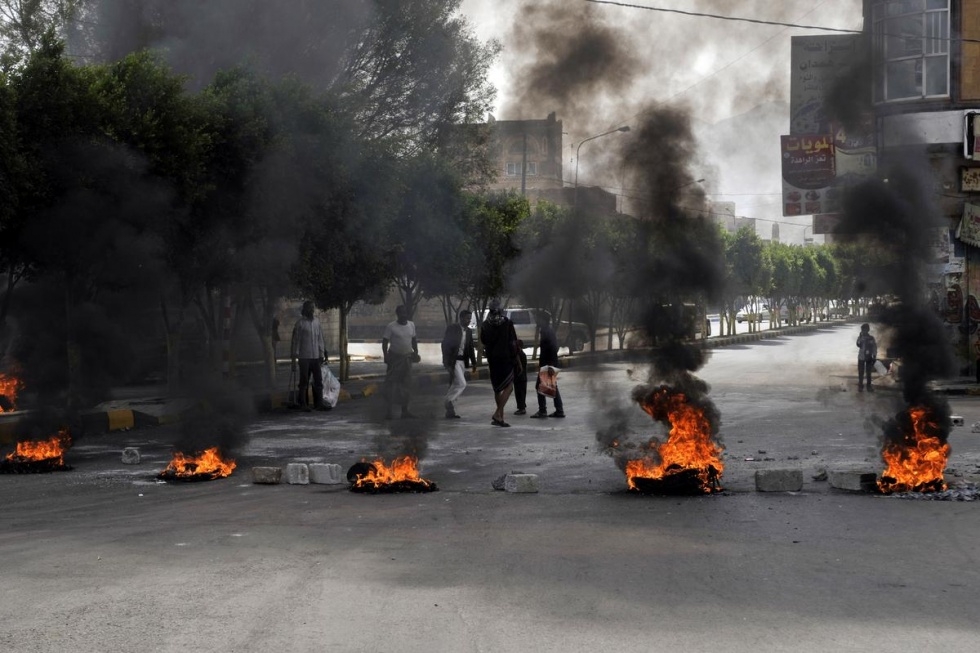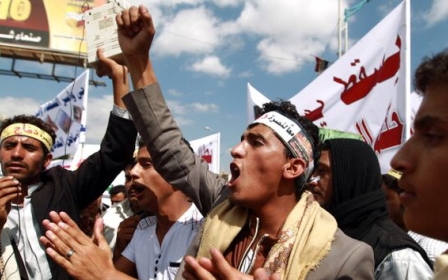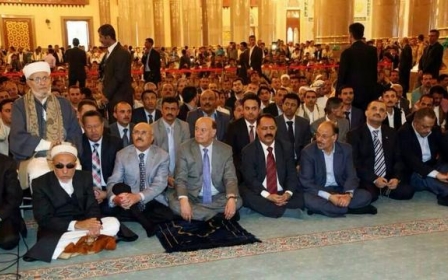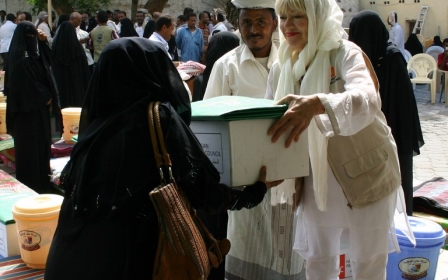Yemen fuel crisis ignites street riots

Hundreds of angry rioters expressed their frustration over the Yemeni government’s decision to increase the prices of petroleum last week by blocking off main roads and burning tires in the streets of the capital.
The price of fuel nearly doubled overnight from 2500 to 4000 Yemeni riyals ($11.6 to $18.6) for 20 liters, while the price of diesel increased to 3900 Yemeni riyals from its previous price of 2000.
The price hikes sparked riots in a number of provinces on Wednesday throughout the impoverished county.
“All the political parties of the country came to an amicable agreement with the current government to increase the oil revenues. This is why the political factions are silent and have not issued any public condemnations,” said Moeen al-Syif, a displeased Yemeni who was watching the riots from a distance.
At the scene of the street riots however, were passionate anti-regime protesters who were catapulting a series of anti-government slogans such as, “the people want the downfall of the government”. Some rioters even demanded the return of former President Ali Abdullah Saleh, who was toppled from power during the Arab-spring of 2011 after 33 years in power.
Economic experts in the past have warned that social unrest could ignite if the government decides to raise the fuel and diesel prices, which will concurrently increase the prices of basic food supplies such as water, meat, fruits, vegetables and spices.
Experts have also warned that the move could push the poverty rate further over 50 percent.
Yemen’s reconciliation government.
The formation of the transitional government in late 2011 came with hopes and promises of improving the lives of ordinary Yemenis by systematically ending corruption and institutionalising programs to stimulate the economy in order to provide more job opportunities.
Three years later however, the economy continues to degenerate, dragging with it millions of Yemeni households, who struggle daily to put food on the table.
The alarming poverty rate in Yemen has attracted the attention of the UN’s World Food Program, which is currently executing an aid relief program which Robin Lodge, the head of external relations for WFP, said is aimed at providing long term solutions instead of short term.
The WFP office in Sana’a also encouraged the Yemeni government to bring into effect statutory policies to analytically counter poverty and unemployment.
The Yemeni government has insinuated that increasing prices in Yemen’s oil sector is a long term solution which will resuscitate the economy an eventually bare its fruits in the coming years.
However, as was exhibited in the street riots last week and which are still ongoing in some areas of Sana'a and in other parts of the country, the Yemeni public want solutions now.
New MEE newsletter: Jerusalem Dispatch
Sign up to get the latest insights and analysis on Israel-Palestine, alongside Turkey Unpacked and other MEE newsletters
Middle East Eye delivers independent and unrivalled coverage and analysis of the Middle East, North Africa and beyond. To learn more about republishing this content and the associated fees, please fill out this form. More about MEE can be found here.




